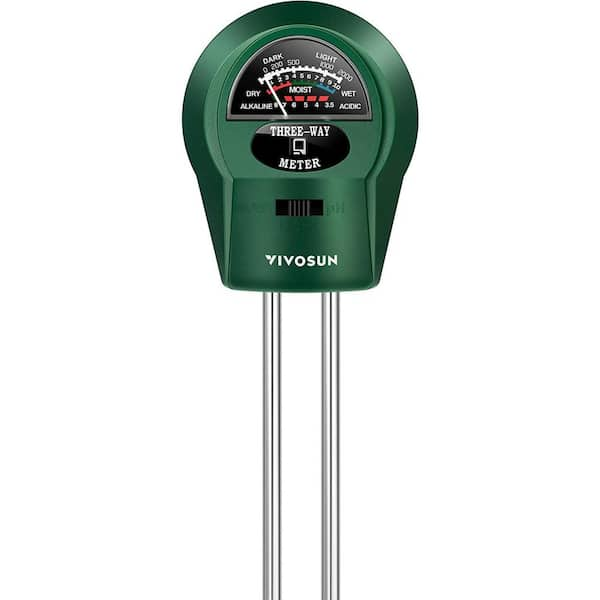Why Every Homeowner Demands a Moisture Meter: Trick Advantages and Functions
Why Every Homeowner Demands a Moisture Meter: Trick Advantages and Functions
Blog Article
The Ultimate Guide to Moisture Meters: A Comprehensive Overview and Just How They Can Save You Cash
Dampness meters offer as important devices in detecting and keeping an eye on moisture content in products, helping in preventing expensive problems and making sure the top quality of products. Understanding the nuances of different types of wetness meters, their applications, and the possible cost-saving benefits they provide can be a game-changer for professionals and services alike.
Kinds Of Dampness Meters
One common type is the pin-type moisture meter, which measures the electric resistance in between two pins inserted into a product. Pinless dampness meters, on the various other hand, usage electromagnetic sensor plates to scan a bigger area without causing damage to the product's surface area.

Infrared wetness meters gauge the thermal homes of a material to determine its wetness web content non-invasively, making them valuable for applications where pin or pinless meters might not be ideal. Understanding the different kinds of moisture meters readily available can assist markets pick the most proper tool for their certain dampness measurement needs.

Benefits of Using Dampness Meters
Wetness meters provide important benefits in properly keeping an eye on and analyzing dampness levels in varied products and settings (Moisture Meter). Among the primary benefits of using moisture meters is the prevention of prospective damages triggered by excess dampness. By finding and dealing with high wetness levels early, dampness meters aid to prevent mold growth, rot, and structural damage in buildings, saving both money and time on repair services. Additionally, moisture meters aid in guaranteeing the high quality of materials during building or manufacturing processes. By precisely determining wetness material, these tools help maintain the integrity of wood, drywall, concrete, and various other products, lowering the threat of flaws or failings.
In addition, using wetness meters can lead to increased energy performance. In agricultural setups, dampness meters play an important duty in optimizing plant returns by enabling farmers to keep an eye on dirt moisture levels and make educated irrigation decisions.
Just How to Choose the Right Moisture Meter
When selecting a moisture meter, it's important click for info to ensure that the meter is suitable for the details material you will be screening. Various products have varying electric residential or commercial properties that can affect dampness readings, so picking a meter created for your material is crucial for precise results. By meticulously examining these Recommended Site elements, you can pick a wetness meter that meets your requirements and provides exact moisture dimensions for your projects.
Correct Techniques for Dampness Meter Usage

Price Financial Savings With Wetness Meter Applications
How can the critical usage of moisture meters lead to substantial expense financial savings across various markets? In the agriculture market, moisture meters help in determining the optimum time for harvesting plants, avoiding excess or over-drying wetness that can influence the final item's quality.
Likewise, in construction, wetness meters help avoid pricey damages by identifying wetness degrees in building materials, such as timber or concrete, which can lead to architectural concerns if not attended to promptly. By determining trouble locations at an early stage, professionals can take restorative actions to stay clear of comprehensive repair services or substitutes, ultimately saving money and time.
Moreover, in the food handling industry, moisture meters are vital for monitoring product quality and ensuring conformity with safety laws. By properly determining dampness web content in foodstuff, manufacturers can avoid wasting, keep freshness, and decrease waste, resulting in considerable expense savings. Generally, the critical application of dampness meters is a valuable financial investment that can lead to substantial expense decreases and enhanced effectiveness throughout numerous sectors.
Verdict
In conclusion, dampness meters are useful tools for determining and detecting dampness levels in numerous materials. By making use of the best dampness meter and complying with proper methods, users can successfully prevent expensive problems triggered by excess dampness.
Moisture meters offer as essential devices in spotting and monitoring moisture content in products, assisting in avoiding pricey damages and guaranteeing the top quality of products. Infrared wetness meters gauge the thermal residential properties of a material to determine its wetness web content non-invasively, making them useful for applications where pin or pinless meters may not be ideal.Dampness meters provide vital benefits in accurately website here examining and checking wetness degrees in diverse materials and atmospheres. In farming setups, dampness meters play a crucial role in enhancing crop returns by making it possible for farmers to monitor dirt wetness levels and make educated watering choices.In conclusion, moisture meters are important tools for gauging and identifying dampness degrees in numerous materials.
Report this page